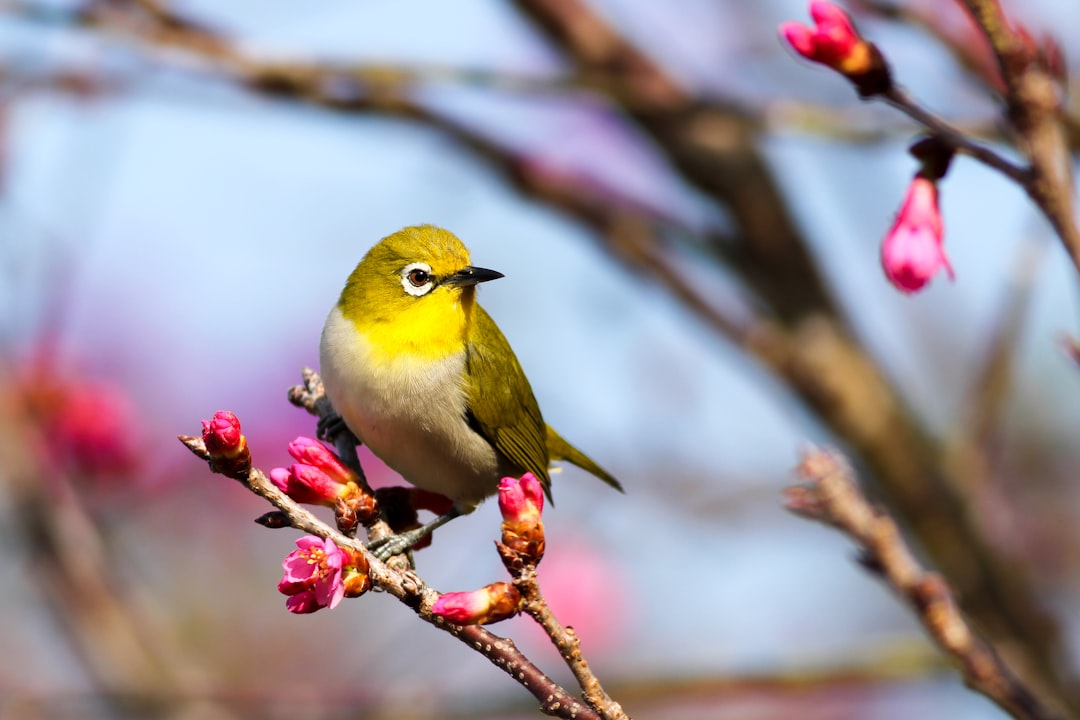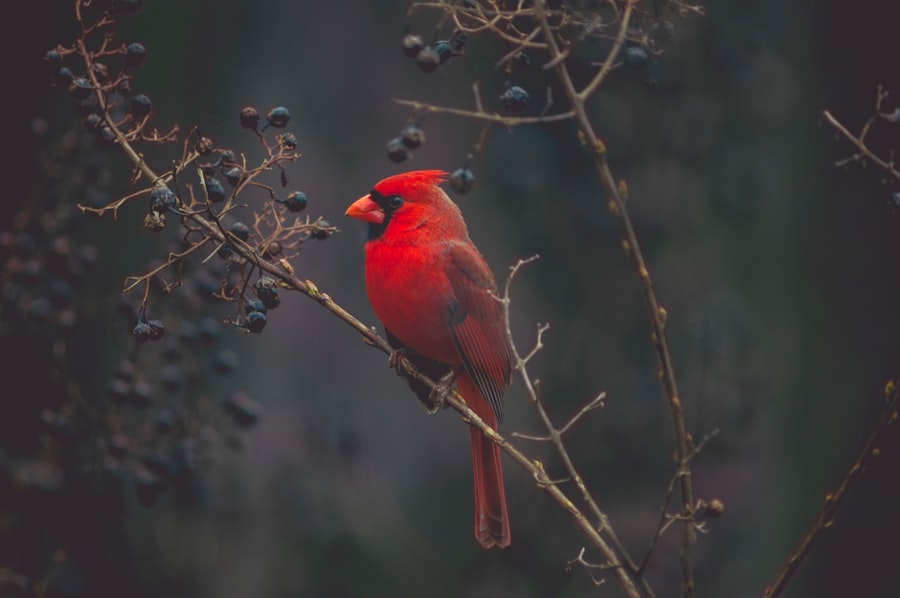Keeping Birds Away: Tips for Garden Protection

Bird control in gardens is an important aspect of maintaining a healthy and thriving garden. While birds can be a beautiful addition to any outdoor space, they can also cause significant damage to plants and crops. This article will provide a comprehensive guide to bird control in gardens, including the different types of damage birds can cause, common garden birds and their habits, natural ways to keep birds away, physical barriers for bird control, scare tactics for bird deterrence, bird repellent products, creating a bird-friendly garden without damage, legal considerations, and final thoughts on keeping birds away from your garden.
Key Takeaways
- Bird control in gardens is important to protect plants and property from damage caused by birds.
- Birds can cause damage to gardens by eating fruits and vegetables, digging up seeds, and leaving droppings.
- Common garden birds include sparrows, finches, and robins, and each has its own habits and preferences.
- Natural ways to keep birds away from your garden include using reflective surfaces, planting certain herbs and flowers, and using bird feeders away from the garden.
- Physical barriers such as netting and fencing, scare tactics like decoys and noise makers, and bird repellent products can also be effective in bird control.
Understanding the Damage Caused by Birds in Gardens
Birds can cause various types of damage to gardens, including feeding on fruits and vegetables, pecking at leaves and buds, and digging up seeds. They can also spread diseases and parasites that can harm plants. Some specific plants and crops that are commonly damaged by birds include berries, grapes, tomatoes, corn, sunflowers, and lettuce. Birds are attracted to these plants because they provide a source of food or nesting material. The damage caused by birds can result in reduced crop yields and the loss of valuable plants.
Common Garden Birds and Their Habits
There are several common bird species that are often found in gardens. These include sparrows, starlings, pigeons, crows, and seagulls. Each of these species has its own habits and behaviors that make them problematic for gardeners. Sparrows and starlings are known for their voracious appetites and can quickly decimate crops. Pigeons are attracted to gardens because they provide a source of food and nesting sites. Crows are highly intelligent birds that can cause damage by pecking at fruits and vegetables. Seagulls are opportunistic feeders that can cause damage by scavenging for food in gardens.
Natural Ways to Keep Birds Away from Your Garden
| Method | Description | Effectiveness |
|---|---|---|
| Scarecrow | A life-size figure of a person or animal that moves in the wind to scare birds away | Medium |
| Reflective tape | Tape that reflects light and creates a flashing effect to scare birds away | Low |
| Netting | A physical barrier that prevents birds from accessing the garden | High |
| Decoys | Plastic or wooden replicas of predators that scare birds away | Medium |
| Ultrasonic devices | Devices that emit high-frequency sounds that birds find unpleasant | Low |
There are several natural methods that can be used to keep birds away from your garden. One method is to use decoys, such as plastic owls or snakes, to scare birds away. Another method is to plant certain types of plants that birds find unappealing, such as marigolds or lavender. These plants have strong scents that can deter birds from entering the garden. Additionally, providing alternative food sources, such as bird feeders or birdbaths, can help divert birds away from your garden.
Physical Barriers for Bird Control in Gardens
Physical barriers can be an effective way to keep birds out of gardens. Netting can be used to cover plants and crops, preventing birds from accessing them. Fencing can also be used to create a barrier around the garden, keeping birds out. It is important to properly install and maintain these barriers to ensure their effectiveness. Netting should be securely fastened and regularly checked for any holes or tears. Fencing should be tall enough to prevent birds from flying over it and should be inspected for any gaps or weak spots.
Scare Tactics for Bird Deterrence in Gardens

Scare tactics can be used to deter birds from entering gardens. Reflective tape or shiny objects, such as CDs or aluminum foil, can be hung around the garden to create a visual deterrent. Scarecrows can also be effective in scaring birds away. It is important to regularly move and change these scare tactics to prevent birds from becoming accustomed to them. Additionally, using noise deterrents, such as wind chimes or bird distress calls, can help deter birds from entering the garden.
Bird Repellent Products for Garden Protection
There are several bird repellent products available that can be used to protect gardens. These include sprays or gels that can be applied directly to plants or crops. These products often have a strong odor or taste that birds find unpleasant, deterring them from feeding on the plants. It is important to follow the instructions on these products carefully and to reapply them as needed. Some repellents may need to be reapplied after rain or watering.
Creating a Bird-Friendly Garden without Damage
It is possible to create a garden that is bird-friendly without causing damage to plants or crops. One way to do this is by providing bird-friendly habitats, such as birdhouses or nesting boxes, where birds can nest and raise their young. Planting native plants that provide food and shelter for birds can also help create a bird-friendly garden. Additionally, providing a water source, such as a birdbath or pond, can attract birds to the garden and provide them with a place to drink and bathe.
Legal Considerations for Bird Control in Gardens
When implementing bird control measures in your garden, it is important to be aware of any laws or regulations that may apply. In some areas, certain bird species may be protected by law and it may be illegal to harm or disturb them. It is important to research and understand the laws in your area before implementing any bird control measures. If you are unsure about the legality of a particular method, it is best to consult with local authorities or wildlife experts.
Conclusion and Final Thoughts on Keeping Birds Away from Your Garden
In conclusion, bird control in gardens is an important aspect of maintaining a healthy and thriving garden. Birds can cause significant damage to plants and crops, but there are several methods that can be used to keep them away. Natural methods, such as using decoys or planting certain types of plants, can be effective in deterring birds. Physical barriers, scare tactics, and bird repellent products can also be used for bird control. It is important to create a balance between creating a bird-friendly garden and protecting plants and crops. By understanding the habits and behaviors of common garden birds and implementing appropriate bird control measures, gardeners can effectively keep birds away without causing harm.
If you’re tired of birds wreaking havoc in your garden, you need to check out this informative article on how to keep birds out of the garden. It offers practical tips and tricks to protect your plants and crops from these feathered intruders. From using scare tactics to creating physical barriers, this article covers it all. Don’t let birds ruin your gardening efforts any longer – click here to read the full article and reclaim your garden’s tranquility.
FAQs
What are some common birds that can damage a garden?
Some common birds that can damage a garden include pigeons, sparrows, blackbirds, and crows.
What are some effective ways to keep birds out of the garden?
Some effective ways to keep birds out of the garden include using bird netting, scare tactics such as fake predators or reflective tape, physical barriers like fences or spikes, and planting bird-deterring plants.
Is it safe to use bird netting in the garden?
Yes, bird netting is safe to use in the garden as long as it is properly installed and secured to prevent birds from getting tangled in it.
What are some bird-deterring plants that can be planted in the garden?
Some bird-deterring plants that can be planted in the garden include marigolds, sunflowers, lavender, and rosemary.
Are there any humane ways to keep birds out of the garden?
Yes, there are humane ways to keep birds out of the garden such as using scare tactics or physical barriers. It is important to avoid using harmful methods such as poisons or traps.



